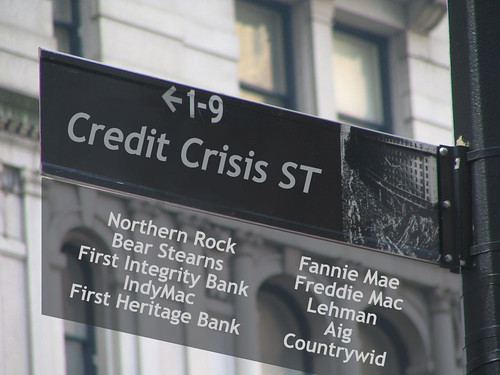Thursday, 4 December 2008
A Quick & Happy Christmas to both our readers
But if you think about it, by the same token, so did the 'telegraph' generation, the 'christmas card' generation - why not simply write a letter?
For what it's worth - here is our Christmas card to all you out there - courtesy of the Churches Advertising Network - which ran a competition for a 30 second nativity.
According to a spokesperson on BBC radio today they got literally tens of entries...
Happy Christmas or Season's Greetings to you all (delete as applicable)
Wednesday, 5 November 2008
What a night!
Good morning from the UK and...phew, thank goodness for that.
For a moment yesterday I wondered if it might all dissolve in the kind of disaster of the last couple of elections.
Now I'm fearful for the next few months, the weight of expectation, the capacity of Americans to do weird things. This may be just British pessimism.
Great speeches from both candidates (far more impressive than you'd get in the UK).
But most of all...wow. An educated, intelligent, globally aware US President. Well done.
Thursday, 9 October 2008
You'd never know I studied economics once
Let’s imagine there’s a world with 1 million people (easy numbers for my poor maths).
Each person has £1000 in savings and is paid £100 per annum to work for one of 100 companies. (You could make it more realistic, but the maths, the maths!)
Ten of those companies are banks.
So…
Each company employs 10,000 people (including the bosses) and pays out £1m in wages. So has to make at least £1m a year to keep going.
It makes things that the 1 million people buy…with their £1000 savings and/or their £100 wages.
Ten companies look after all this money. £1000m in savings and £1m in current (checking) accounts. They have to take out of the system £1m to pay their staff, but of course each £100 goes into other companies – like supermarkets, car dealers etc and then ends up back in one of the ten banks.
I don’t speculate on the value of the companies – there is only so much money to go around so it’s irrelevant.
Some companies will be good at bringing in money and others will go short. The former will bank the money (or spend it) and it will still end up in a bank. Where the latter kind of company might ask to borrow it.
If they end up not being able to pay it back, they’ll go bust. But the money will still be in the system.
So, my question is this, how do they screw up?
Explanations for the hard of thinking, welcome. And feel free to elaborate on my model.
Thursday, 2 October 2008
Extremely Social Marketing

Just got back from Brighton where the first 'World Social Marketing Conference' was held at the Metropole.
I didn't see much of the sea but the event itself was fascinating for all kinds of reasons.
First of all, I met and spoke with Philip Kotler. I have to get this fact out of the way because my colleagues are all ribbing me about this. Whatever you think of the guy I can assure you he seems nice enough - even when I started telling him about my research. He stayed awake anyway.
There's no doubt that social marketing is a large and growing sector.
It's an area Nick and I are realising (slowly I know) that we are working in more often than not.
To present marketing - in our writing, consultancy or teaching - as just commercial, profit-focused is not only undesirable, it's inaccurate.
In Marketing & PR we made sure we discussed how small businesses and nonprofits could benefit from clear marketing thinking. In the forthcoming Virtually Free we likewise apply sound marketing principles to all kinds of organisations.
In any case, very few business people rush to work simply to make money.
We know that, for many of us, money is a 'hygiene factor' [it's a kind of minimum requirement] but it's not a motivator. Of course as you take hygiene factors away you can start to 'disincentivise' work. As you build up motivators, you get more and more committed and industrious.
The World Social Marketing Conference was packed with highly motivated people, marketers, from agencies, nonprofits, universities and other, hybrid, organisations.
I came away enthused. Eager to do more with the knowledge we have at PWOTG.

Thursday, 11 September 2008
The future is coming...
Discuss.
Monday, 8 September 2008
Let me tell you about this T-shirt

Since finishing the new book I’ve been thinking about how a smaller organisation can get its act together.
A great marketing strategy isn’t just about getting all the elements of the marketing mix ‘right’. As marketers never tire of telling you – it’s more complicated, deeper than that.
But complication means problems.
For a small organisation, like an SME or a charity, execution of a marketing plan is where it all happens. Because of the limited resources to hand, the basic tasks of a marketing plan can seem overwhelming and, importantly, take valuable people away from running other vital operations.
There is, in fact, a related problem for larger companies. How do they communicate what must be done – internally and to others such as agencies – in order to allocate sufficient resources?
One reason this struck me forcibly as I finished the book, and then discussed this with Nick, was that the ‘new marketing’ demanded by the web and other converging technologies gives us even less room for manoeuvre.
Even more than ever, marketing is something you have to do now and every day. And it all has to work together, day after day.
Great small organisations know and do this. Larger organisations often struggle.
So as I wrote about online promotion and the maintenance of an online brand, I emphasised ‘consistency’ and ‘integration’.
Consistency. When everything you say and do refers to your core values.
Integration. When everything you do links to everything else you do.
Since then, Nick and I have been discussing a marketing strategy ‘mantra’ that could remind us of what the rules are. I’ll go into all this at greater length in the next few posts but for now I’ll just leave you to consider…
Insight, purpose, truth & beauty.
Religion, Lies and Videotape
One is that the Republicans (and media) are clearly using the same formulae to try and unsettle potential Democrat voters (remember a small proportion of the electorate decide the outcome by shifting from one party to another).
It's also interesting that this video is edited in such a way that it's difficult to note anything other than that fact - the same phrases crop up - sometimes the context is obscure...who is saying what about whom.
One thing is clear, some (ignorant) people see it as their job, or their right, to spread disinformation for their own ends. Take the assertion that 'Hussein' or attending a Muslim school makes Barack Obama a Muslim... that's basically distorting the truth.
Or lying.





